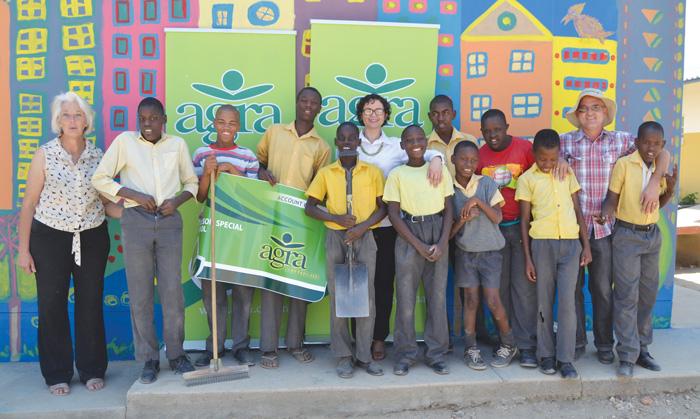
Meatco Foundation charts way to help NCA farmers

Farmers in the Northern Communal Areas stand to benefit from the Meatco Foundation’s support to a strategic plan to increase red meat production from the regions excluded by the Veterinary Cordon Fence. Satellite feedlots will form a key component of this long-term strategy.
Kingsley Kwenani, Chief Executive Officer of the Meatco Foundation gave an overview of how the initiative would be implemented. “The project is composed of different sectors and each sector is implemented differently.
The Sustainable Range Management part will be implemented by the IRDNC(Integrated Rural Development and Nature Conservation) and the other sectors like commercialisation by the NCA procurement team. Project monitoring will be done at different levels at the implementation site, by different levels at Meatco and by the Meatco foundation who is coordinating the project.”
“For Ekwatho there is a set of criteria where farmers will have to apply through the procurement officers and then their land is assessed if they qualify. For range management areas, the areas of Okongo and Otjitjekua were selected based on the land degradation and willingness of the traditional leadership. The criteria again is that the procurement engages with the community leadership who then organise a community meeting and then from there potential beneficiaries are selected based on their knowledge of livestock management. It should be noted that these areas are regarded as pilot areas and the same ideas will be replicated to other areas,” said Kwenani.
“The plan is to source for more funds to continue with phase two of the project. The planned objectives will not be fully realised due to the current drought situation in the country which still persists to date. At this stage, funding is only available for three years,” added Kwenani.
The project will cost approximately N$ 7 million and already started in May 2013 and should be completed by October 2015. The Danish Coop is expected in the country next week to monitor the progress. The project will be carried out in Otjitjekua in the Omusati Region, Omuramba in the Kunene Region, Okongo in the Ohangwena Region and Mangetti Farms in the Kavango West Region. Approximately 2400 small communal farmers are expected to benefit from the project.











































